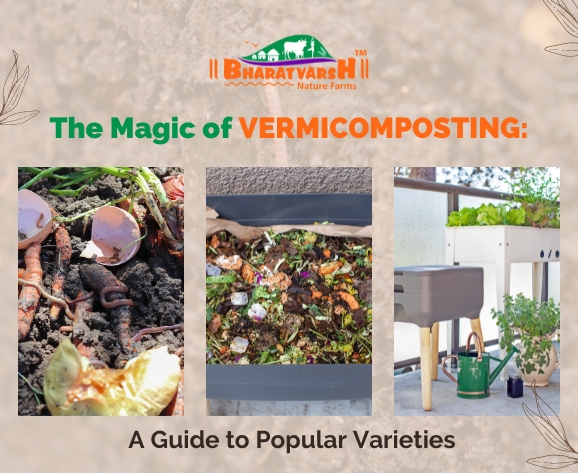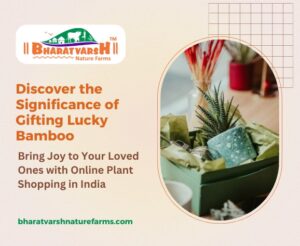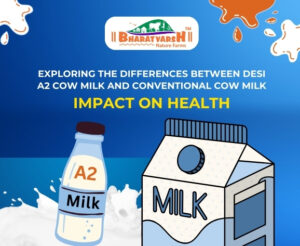Are you tired of throwing away your kitchen scraps and yard waste, only to see them end up in a landfill? What if I told you there was a magical solution that could transform your waste into nutrient-rich compost for your garden, all with the help of some slimy little creatures? That’s right, we’re talking about the magic of vermicomposting – the process of using worms to break down organic waste into a rich soil amendment. In this blog, we’ll explore the benefits of vermicomposting, how to set up your own worm bin, and tips for maintaining a healthy worm population. Get ready to discover the power of these little composting champions and transform your waste into a garden oasis!
Vermicomposting: What is it?
In vermicomposting, worms are used to compost. It is an efficient way to reduce kitchen and yard waste while providing a nutrient-rich additive for your garden.
The process is simple and does not require a lot of space. It only takes a composting bin, bedding material, and worms to get started. The worms will compost the organic matter once it has been broken down.
Composting worms are different from earthworms in your garden. They are specially adapted to eating organic matter and are very efficient at breaking it down.
Vermicomposting has many benefits, including reducing waste, improving your garden, and reducing your carbon footprint. If you want to reduce your waste and help the environment, vermicomposting is a great option!
The Benefits of Vermicomposting
Vermicomposting has clear benefits, and the practice is easy to implement. The worms will do the work of breaking down the organic matter into nutrient-rich, dark compost. This compost can then be used to fertilize plants in your garden. It is an efficient way to reduce waste while providing essential nutrients for your garden.
The benefits of vermicomposting extend beyond reducing waste and enhancing garden health. In addition to producing less waste, vermicomposting reduces the amount of methane released into the atmosphere. It has also been found that vermicomposting increases the number of beneficial microbes in soil, which helps plants absorb nutrients more effectively.
As a result of vermicomposting, toxins such as fertilizers, pesticides and herbicides are eliminated from the environment. Degrading organic matter also reduces carbon dioxide emissions and global warming. Moreover, plants are able to grow better as the soil becomes more resistant to erosion.
Overall, vermicomposting can play an important role in fighting climate change and reducing pollution. By recycling kitchen and yard waste, you can create nutrient-rich compost that has the potential to revolutionize your garden and help the environment.
How to Get Started with Vermicomposting
Vermicomposting is an easy and efficient way to reduce organic waste while creating nutrient-rich compost for your garden. You will need the right materials and knowledge to get started.
Here are seven tips to get you started with vermicomposting:
- Choose the right bin: Look for a large enough bin with plenty of air holes and drains. This will ensure the worms can breathe and have enough space to do their work.
- Choose the right worms: The red wriggler is the most common type of worm used in vermicomposting.
- Prepare bedding: Prepare a bedding for the worms by mixing shredded paper or cardboard with soil or coco-coir.
- Add the worms: Add a few handfuls of worms to the bedding.
- Feed the worms: Feed the worms with kitchen scraps regularly.
- Maintain a consistent temperature: The ideal vermicomposting temperature is 50–77 degrees Fahrenheit.
- Maintain proper moisture levels: The bedding should be slightly damp, not wet.
By following these simple steps, you can get started with vermicomposting and ensure your garden receives the ultimate source of natural fertilizer.
The Science Behind Vermicomposting
The science behind vermicomposting is quite simple, but there are some hidden processes that many don’t think about. When worms consume organic material, such as kitchen scraps, their digestive process breaks the material down incredibly quickly, creating the high-quality fertilizer that is so beneficial to your garden.
The worms secrete a mixture of enzymes and enzymes that act upon the organic material and eat the nutrients from it. These enzymes release beneficial microbes into the compost, giving it additional fertilization power. The worms then ingest the material and convert it into castings, which are high in nutrients available to your plants.
Vermicomposting can be very effective, but it’s important to remember that science is behind it. Keeping a keen eye on the moisture levels, temperature, and amount of food fed to the worms is essential for successful vermicomposting. With this knowledge, you can enjoy successful vermicomposting and benefit from the nutritious addition to your garden.
In conclusion, vermicomposting is a simple yet powerful solution to reduce waste, create a healthy garden ecosystem, and produce nutrient-rich soil amendment. With just a few materials and a population of red wiggler worms, you can transform your kitchen scraps and yard waste into a valuable resource for your garden. So why not give vermicomposting a try and experience the magic of worms for yourself? Not only will you be doing your part for the environment, but you’ll also reap the benefits of healthier, more productive plants. Happy composting!
FAQ’s About Vermicomposting
Q: What is the ideal temperature for vermicomposting?
A: The ideal temperature for vermicomposting is between 55- and 77-degrees Fahrenheit.
Q: How often should I feed my worms?
A: You should feed your worms approximately 2-3 times weekly. Feed them enough to keep the bedding moist but not soggy — too little and they won’t have enough food, and too much can lead to anaerobic conditions.
Q: What food can I feed my worms?
A: You should feed your worms various food materials, such as fruit and vegetable scraps, coffee grounds, tea bags, eggshells, etc. Avoid feeding them any animal products, fatty and oily foods, acidic foods, and dairy products.
Q: How quickly will my worms process organic material?
A: The worms will process organic material quickly, typically in 1-2 weeks. This process can be accelerated by shredding material before adding it to the bin.
Q: How do I know if my worms are fertile?
A: You can tell if your worms are fertile by the presence of small cocoons in the bedding. These cocoons will contain tiny vermicomposting worms. This is a sign that the conditions in your worm bin are optimum.
If you are interested in starting your own vermicomposting system but don’t know where to start, don’t worry – help is at hand! Bharatvarsh Nature Farm provides excellent support to get you started with your own vermicomposting project. They offer high-quality vermicomposting supplies, including red wiggler worms, worm bins, and bedding material, as well as expert guidance on how to set up and maintain your worm bin. With their help, you’ll be well on your way to transforming your waste into a valuable resource for your garden. So why not get in touch with Bharatvarsh Nature Farm today and start your vermicomposting journey? Your garden – and the planet – will thank you!
If you are interested, you can always write to us for any enquiry at info@bharatvarshnaturefarms.com
For more information and to place your order,
visit the website: www.bharatvarshnaturefarms.com
Call Us @ 8603214214 or 8650214214
Also Read: Exploring the Beauty and Benefits of Bamboo Plants – Bharatvarsh Nature Farms




